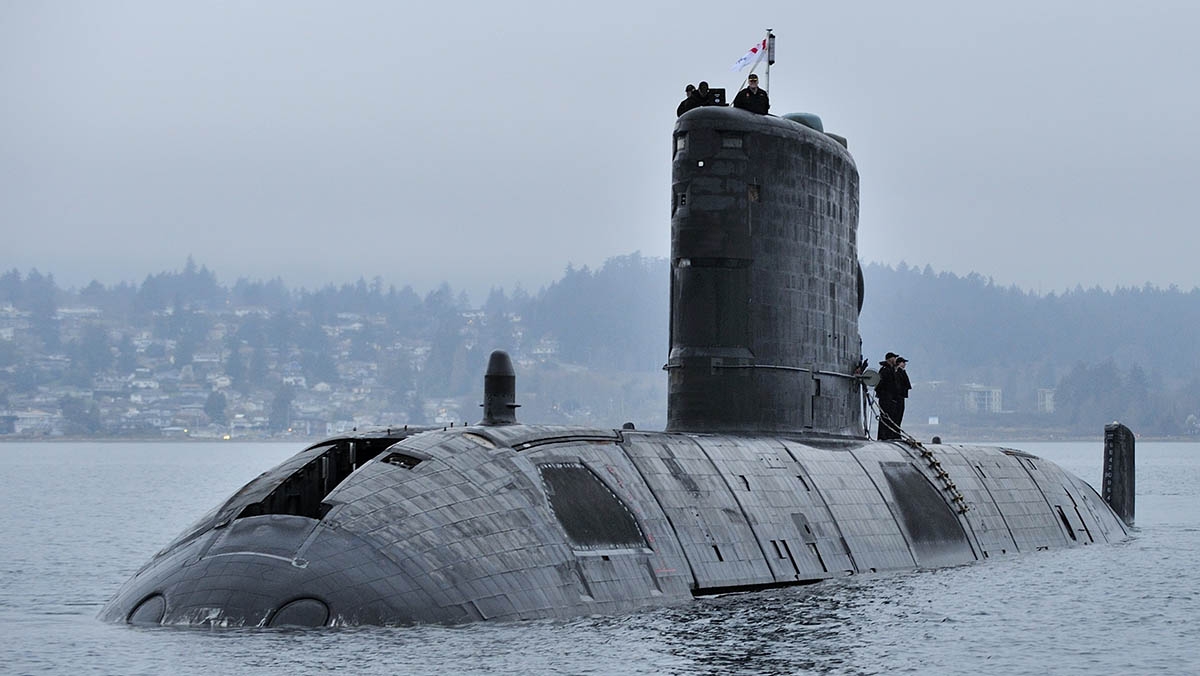
Ukraine is our wake-up call: Canadian Forces lack capabilities to be operational
OP-ED by Lieutenant-General (retd) J.O.Michel Maisonneuve
The chickens have come to roost. The current crisis in Ukraine has shown that our lack of preparation on many fronts and our obsession with the woke agenda now precludes us from taking action like the serious nation we should be.
The CAF
Canadians do not care about their defence policy; this may appear a generalisation, but other than a few people – academics, defence lobbyists and defence materiel providers – the general population never thinks of its military.
Except during a crisis.
Our fire insurance policy (the Canadian Armed Forces – CAF) has not been paid up for the last – you decide how many years – and now that a fire is raging in Ukraine, Canadians are wringing their hands and finding out that militarily, there is not much we can do to fight it. Many such as Hugh Segal have been crying out in the wilderness for years for Canada to review its defence (and for that matter, its foreign) policy to ensure our military is adequately equipped, trained and manned to act as the insurance policy it is meant to be.
Once the crisis begins, it is too late. Action must take place before the crisis, so that you can go from a standstill to operations immediately. And what actions should we be taking with our armed forces? Assuming the roles the CAF has been assigned by successive governments remain, let’s start with the personnel situation. In my 45 years with the CAF and Department of National Defence, I have never seen unit structures unrestricted. This means no unit has all the capabilities it requires to be fully operational. In addition, many branches of our military have been unable to fill their units to full strength. This has resulted in regiments and battalions having to borrow personnel from one unit to another to be able to fulfill operational missions. The RCAF has been dealing with a pilot shortage for many years and the RCN reports huge crew shortages. The personnel situation must be dealt with first, even though a CAF regular force of 60,000 and a reserve force even smaller at 20,000 cannot be seen as serious for a G7 country with the second largest landmass in the world.
Secondly, equipment; successive governments – both Conservative and Liberal – have prevaricated about buying a new fighter aircraft for 20 years, although hundreds of millions have been spent over that time to participate in the U.S. F35 project. I would have assumed Canada was looking to invest in the development of this fighter to eventually purchase it. Instead of pulling the trigger and buying the aircraft, no government has had the courage to make the decision, and more millions of taxpayers’ money have been spent on another useless procurement competition. Decisions on new ships for the RCN and handguns for the entire CAF are taking too long. The last crisis Canada faced showed the government could quickly decide and field equipment; Minister of National Defence Gordon O’Connor fast-tracked the purchase of C-17 transport airplanes so they could be used immediately to support our Afghanistan mission. Why could we not take the same approach to buying equipment before a crisis is upon us? Let’s watch how long our German allies take to rearm their forces; they may provide a good model for us to follow, because we pitifully have forgotten how to do it.
NATO
Insofar as the Russia-Ukraine conflict, NATO, our international insurance policy, is also having trouble reacting. There are many things it could do better and quicker short of directly confronting Russia. Remember the international community has spent billions reacting to Covid which was seen as a threat. Now we have a real existential security threat that must be contained, at the risk of a nuclear exchange; so we should not hesitate to spend the resources necessary to do so.
My friend the former Chief of the Defence Staff General Rick Hiller has been vocal in calling for a no-fly-zone over Ukraine. I agree with him; but here, we get into the same issue that has been NATO’s Achilles heel since its founding: the need for consensus. The great positive advantage of NATO is that it is a military-political Alliance; its great disadvantage is that it is a political-military Alliance. Consensus means all 30 member Nations would have to agree to set up a NFZ. The only way to get around the consensus issue is to set up a coalition of those who are willing to help. In early October 2001, I was delegated by the then CDS, General Ray Henault to Tampa, FL, to offer Canada’s participation in the U.S.-led “coalition of the willing” that would intervene in Afghanistan. A similar coalition could be used in this strategic emergency, understanding that intervention and direct confrontation could mean an unstable Putin might resort to the use of nuclear weapons. But he might anyway.
For NATO, this is the perfect time to deploy the entire NATO Response Force on the eastern flank of the Alliance; not a sprinkling of forces or just the Very High Readiness Joint Task Force, but the entire 40,000 strong NRF with all its equipment and assets. The necessary headquarters to command the NRF could also be deployed as well as other HQs ready to accept command of forces beyond the NRF as the situation changes. Surely consensus could be achieved for this activation of assets since the deployments would be on the territory of member nations.
The full Standing NATO Maritime Group should immediately be deployed into the Black Sea to exercise freedom of movement. The special forces of nations able to deploy in support of Ukraine should be immediately and secretly sent in to assist in resisting the Russian attacks and to provide help protecting President Zelenskyy. NATO naval, land air and special forces assets should be warned for deployment as required. NATO’s Centres of Excellence should be fully operationalised to provide input to military HQs and covertly assist Ukraine. For example the Cyber CoE in Estonia, the Space CoE in Toulouse, France and all the others who can bring unique capabilities to the effort.
The Environment and Canadian Fossil Fuels
Here, too, the chickens have come to roost. First, Canada’s lack of pipelines and inability to export gas and oil is directly funding Putin’s empire building. Europe has been sourcing its gas and oil from Russia whereas if Canada had the ability to get its resources to the coasts, they could help replace Russia’s. Secondly, Canada now has seen what can happen on its fanciful desire to “go green” when our emissions amount to a miniscule 1.6 % of the world’s GHG. This is the time to support the largest emitters by helping them replace their coal with cleaner fossil fuels. To do this, Canada must complete the construction of all trans-Canadian pipelines. The president of the U.S. should be pressed to reverse his decision on the Keystone XL pipeline.
Conclusion
The international crisis taking place in Ukraine may be what Canada and the West need to shake themselves from the complacency that has taken over our world. Lovely theories such as the “Great Reset”, the obsession of some with the environment at the price of the economy, the lack of preparation and maintenance of our CAF capabilities, and the general atrophy of NATO’s capabilities and decision-making should now be placed front and centre, and traded in for a focus on action. Now. As the current crisis rages, and before further destabilisation ensues (China-Taiwan, North Korea, Iran nuclear capability, etc). The so-called peace dividend didn’t pay after all: it’s time to re-invest in Canada’s security.
PHOTO: Her Majesty’s Canadian Ship (HMCS) VICTORIA returns home through the Straits of Juan De Fuca, from operations with the United States Navy (USN) on February 26, 2015. CREDIT: LS Zachariah Stopa








